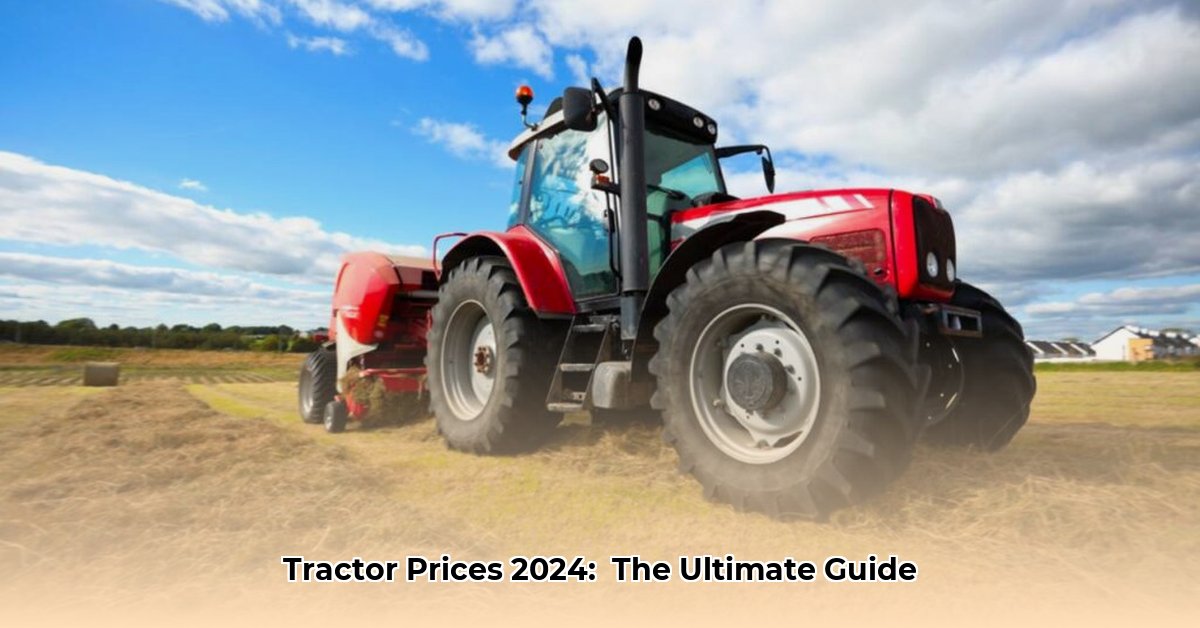
Thinking about purchasing a tractor? It's a significant investment requiring careful consideration of various factors influencing the final cost. This comprehensive guide will break down tractor pricing, providing insights into the key elements affecting the price tag, along with practical advice to help you make an informed decision. For more detailed pricing information, see this helpful tractor pricing guide.
Factors Affecting Tractor Price
Several key components determine the cost of a tractor. It's not solely about horsepower; a multitude of factors combine to establish the final price.
Brand and Model: The Tractor's Lineage
Similar to automobiles, tractor brands vary in quality and features. Established brands like John Deere, Massey Ferguson, and Case IH typically command higher prices than lesser-known brands. Within each brand, various models exist, each with different specifications and price points. A basic model will always be less expensive than a top-of-the-line version.
Size and Horsepower: Power and Price
Horsepower directly correlates to a tractor's capabilities. Higher horsepower tractors, ideal for heavy-duty tasks, are naturally more expensive. Conversely, compact tractors suitable for smaller properties are significantly cheaper. Size and horsepower are intrinsically linked; a larger tractor almost always implies higher horsepower and a correspondingly higher price.
New vs. Used: The Value Proposition
Purchasing a new tractor offers a warranty and peace of mind regarding its operational history, but comes at a premium. Used tractors, however, can provide considerable savings, depending on age, condition, and hours of operation. A well-maintained used tractor can be a cost-effective choice, but potential repair costs should be considered. Market conditions heavily influence used tractor pricing.
Features and Attachments: Customizing the Cost
Tractors offer high levels of customization. Features like GPS guidance, automatic steering, and specialized attachments greatly increase the price. While these extras enhance efficiency, carefully evaluate their necessity for your specific applications. These upgrades can add thousands of dollars to the overall cost. Prioritize features aligning with your operational needs.
Location and Market Conditions: Regional Variations
Tractor prices vary regionally due to supply, demand, local taxes, and import duties. Areas with a high concentration of farming operations might have more competitive pricing and a wider selection. Seasonal demand fluctuations also impact pricing. It's crucial to shop around and compare prices from different locations.
Price Ranges and Examples (2024 USD Estimates)
The following table provides a general price range for various tractor categories. Note that these are estimates, and actual prices vary based on several factors:
| Tractor Type | Approximate Price Range (USD) |
|---|---|
| Small Compact Tractors | $10,000 - $40,000 |
| Mid-Size Utility Tractors | $30,000 - $100,000 |
| Large Agricultural Tractors | $80,000 - $350,000+ |
| High-spec, specialized tractors | $200,000 - well over $500,000 |
These figures serve as a guide. Consider specific brands, models, features, condition (for used tractors), and location for an accurate assessment.
Financing and Leasing Options: Managing the Investment
Given the substantial investment involved, financing is common. Loans and leases help manage the cost over time. Explore various options and carefully compare interest rates and terms. Consider factors like down payments and monthly payments carefully.
Maintenance and Operating Costs: Ongoing Expenses
Beyond the initial purchase price, ongoing costs are vital. Fuel consumption, routine maintenance (oil changes, filter replacements), and potential repairs significantly impact the total cost of ownership. Factor these into your budget. Preventative maintenance is crucial for maximizing the lifespan and minimizing repair expenses.
Tips for Buying a Tractor
Thorough Research: Investigate various brands, models, and features to find the perfect fit. Read reviews, compare specifications, and consult online forums.
Shop Around: Obtain quotes from multiple dealerships and negotiate prices.
Pre-Purchase Inspection (Used Tractors): For used tractors, a pre-purchase inspection by a qualified mechanic is highly recommended. This step mitigates potential problems.
Prioritize Needs: Focus on purchasing a tractor that fulfills your requirements and remains within budget. Avoid overspending on unnecessary features.
Buying a tractor is a considerable investment. By carefully considering all aspects and conducting thorough research, you can make an informed decision ensuring long-term satisfaction. The final price is entirely dependent on your specifications and priorities.